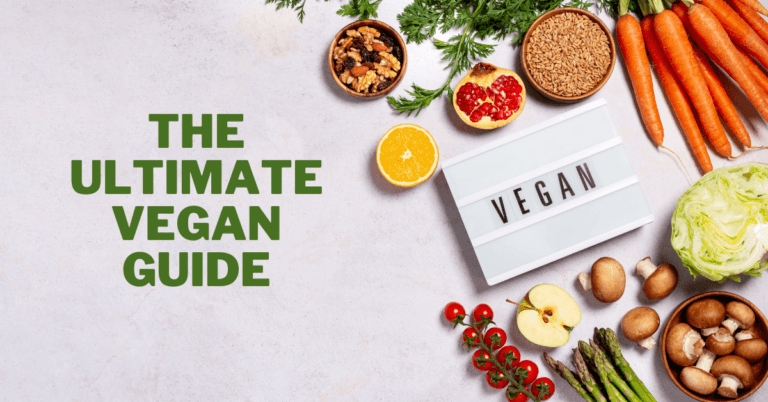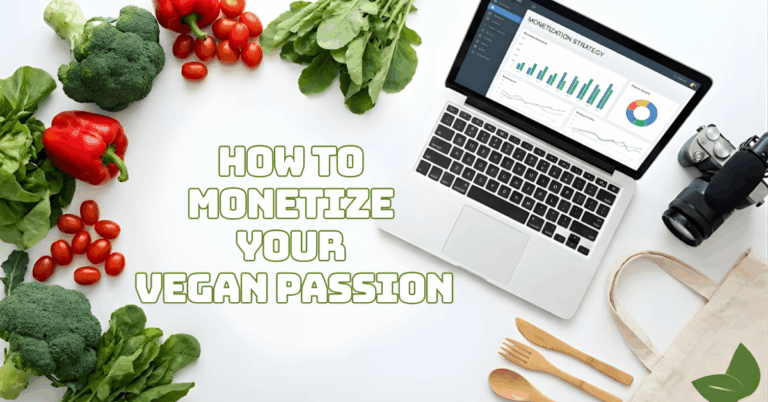Busting Veganuary Myths
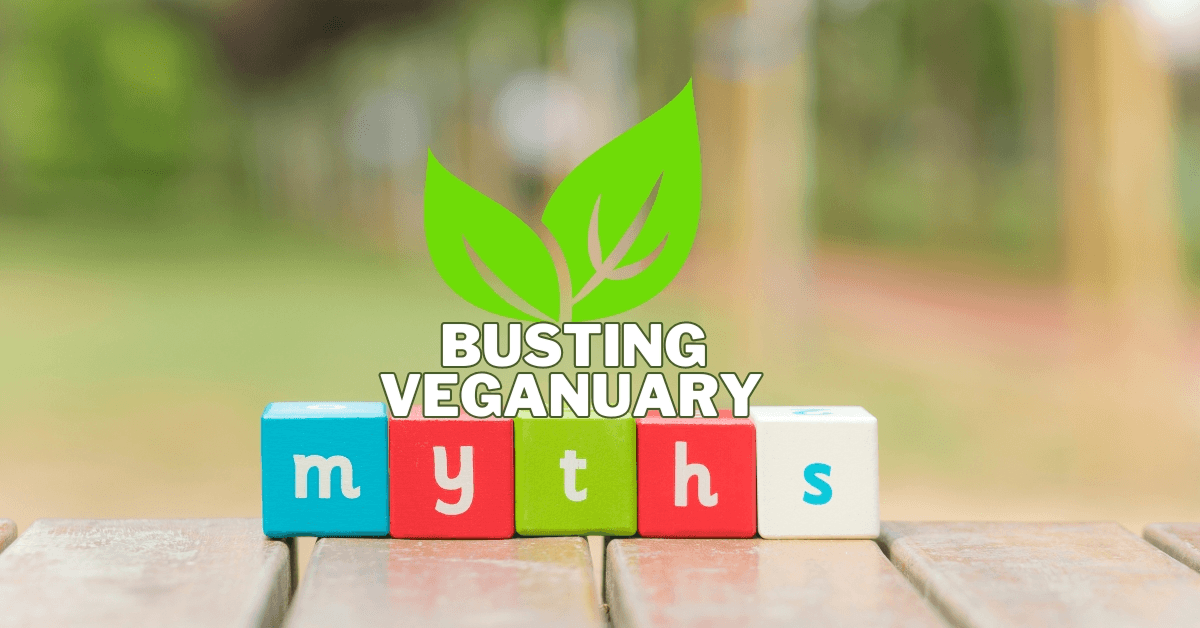
Busting Veganuary Myths: Separating Fact From Fiction
Every January, thousands of people worldwide embrace a vegan diet for the month, a challenge known as Veganuary.
While this movement grows in popularity, it is surrounded by numerous myths and misconceptions.
This article will debunk common Veganuary myths and provide practical tips to help you complete the challenge.
What Is Veganuary?
Veganuary is a global movement that began in 2014, encouraging individuals to adopt a vegan lifestyle for January.
The initiative promotes a plant-based diet that excludes all animal products, aiming to improve health, protect the environment, and reduce animal suffering.
By participating in Veganuary, individuals are inspired to explore the benefits of veganism, including its positive impacts on personal well-being and sustainability.
The challenge often leads participants to realize that a vegan lifestyle can be enjoyable, sustainable, and beneficial beyond the initial 31 days, fostering long-term dietary changes and increased awareness about animal welfare and environmental conservation.
Debunking Veganuary Myths
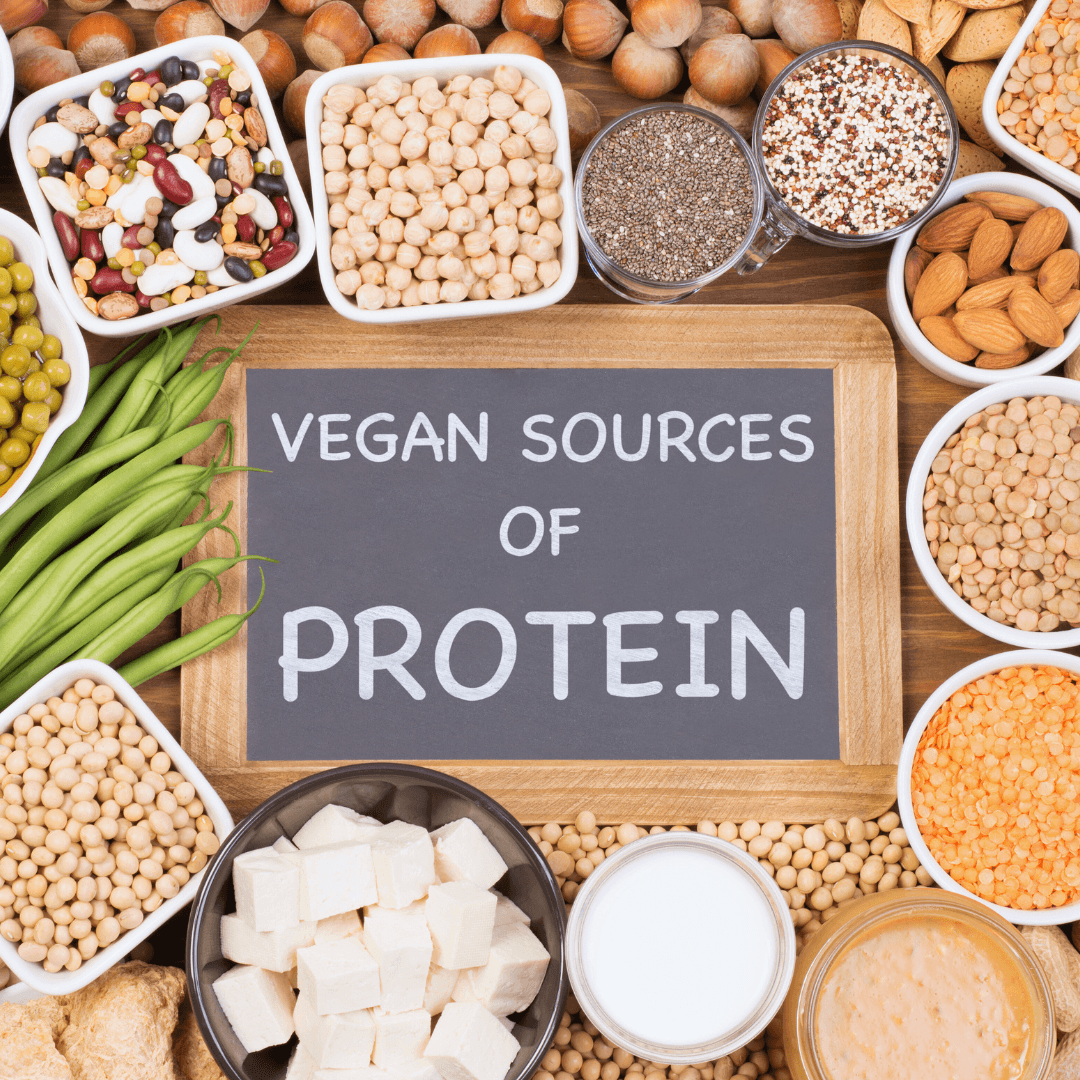
Myth 1: Vegans Don't Get Enough Protein
One of the most common Veganuary myths is that getting enough protein is difficult. However, there are numerous plant-based protein sources readily available.
Foods like lentils, chickpeas, tofu, tempeh, seitan, quinoa, nuts, and seeds are all protein-rich. These foods can be incorporated into a variety of delicious and nutritious meals. Additionally, many vegetables and grains also contain significant amounts of protein.
Myth 2: Vegan Diets Are Expensive
Another misconception about veganism is its perceived costliness. While specialty vegan products can be expensive, a basic vegan diet focused on whole foods like grains, beans, vegetables, and fruits can be quite affordable.
Planning meals and purchasing these staples in bulk can further reduce costs, making veganism accessible to various budgets.
Additionally, locally grown and seasonal produce can be economical options. This myth underestimates the affordability and versatility of plant-based eating.
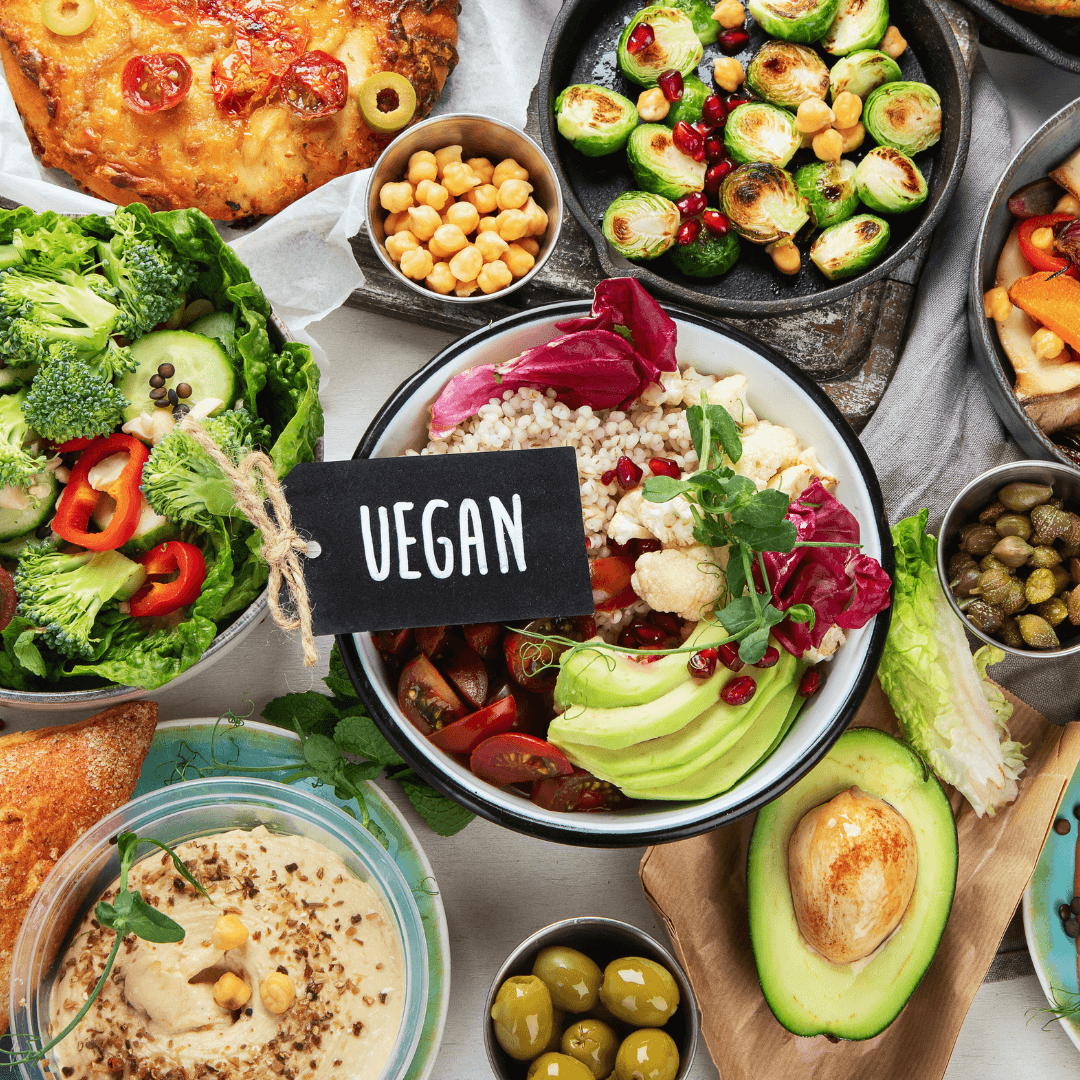
Myth 3: Vegan Food Is Boring
Some people believe that a vegan diet is limited and uninteresting, but in reality, vegan cuisine is incredibly diverse and flavorful.
It spans various culinary traditions, from spicy Indian curries and zesty Mexican tacos to vegan interpretations of beloved comfort foods like burgers and pizza.
An abundance of delicious options showcase the versatility of plant-based ingredients. Many restaurants have embraced veganism with dedicated menus.
Myth 4: Vegans Can’t Get Enough Nutrients
Critics claim vegan diets lack essential nutrients like iron, calcium, and vitamin B12, found abundantly in animal products.
However, vegans can meet these needs through plant-based sources such as leafy greens, legumes, nuts, seeds, and fortified foods like plant milk and cereals.
Vitamin B12 supplements are also recommended. With proper planning, vegans can maintain a balanced diet that supports overall health, debunking misconceptions about nutrient deficiencies in veganism.
Myth 5: Veganism Is Too Difficult To Maintain
While some perceive veganism as challenging, it is increasingly manageable with accessible resources and support.
Many grocery stores now offer dedicated sections for plant-based products, and online communities, blogs, and apps provide valuable meal planning, recipes, and restaurant guides.
These resources empower individuals with practical tips, nutritional advice, and community support.
With enhanced awareness and convenience, transitioning to and maintaining veganism has become more feasible, dispelling the misconception of its inherent difficulty.

Myth 6: Vegans Can't Build Muscle
The Vegan myth that vegans can’t build muscle is disproven by professional athletes thriving on plant-based diets: plant-based proteins, a balanced diet, and rigorous training support muscle growth and athletic performance.
Athletes like Patrik Baboumian and Venus Williams showcase veganism’s effectiveness in achieving strength and endurance.
Their success challenges the notion that animal products are essential for muscle development, highlighting plant-based diets’ capability to foster athletic prowess and fitness goals.
Myth 7: All Vegans Are Healthy
While a vegan diet can enhance health, it doesn't guarantee it outright. The key lies in prioritizing nutrient-dense whole foods over processed options.
A balanced vegan diet should include a variety of plant-based sources like fruits, vegetables, whole grains, legumes, nuts, and seeds to ensure sufficient intake of essential nutrients such as vitamins, minerals, and protein.
Minimizing reliance on vegan junk foods high in refined sugars, unhealthy fats, and additives is vital.
Myth 8: Veganism Is Just A Fad
Some dismiss veganism as a passing trend, but its growing popularity suggests otherwise.
Extensive research supports veganism, highlighting its benefits for health, the environment, and animal welfare.
As awareness of these benefits increases, more people adopt a vegan lifestyle. The availability of vegan products and options in restaurants and stores continues to expand, indicating a lasting shift in dietary preferences.
Myth 9: Vegan Diets Are Not Sustainable
Critics often argue that a vegan diet is not environmentally sustainable; however, extensive research demonstrates the opposite.
Many people have successfully maintained a vegan lifestyle for years, thriving on a diet rich in whole foods.
Planning balanced meals, staying informed about nutrition, and seeking support from the vegan community can help sustain a vegan diet indefinitely.
Studies consistently show that plant-based diets generally have a lower environmental footprint than diets high in animal products.
Myth 10: Veganism Means Missing Out On Cultural Traditions
While certain cultural traditions heavily incorporate animal products, many cuisines boast diverse plant-based dishes.
With creativity and adaptation, traditional recipes can be transformed into vegan versions that retain their cultural essence.
This approach honours culinary heritage and expands the variety of accessible, plant-based options within cultural contexts. Sharing vegan meals can introduce friends and family to novel flavours and culinary traditions.
Myth 11: Vegan Diets Are Only For Adults
Another common Vegan myth is that vegan diets are unsuitable for children or older people. With careful planning and attention to nutritional needs, individuals of all ages can thrive on a vegan diet.
This myth overlooks the potential benefits of veganism across different life stages when approached with informed dietary choices and professional support.
Pediatricians and dietitians can offer valuable guidance to ensure that vegan children receive adequate nutrients for growth and development.

Myth 12: Vegans Are Always Hungry
Another misconception is that vegan diets leave you feeling constantly hungry. This usually stems from a need for more understanding of properly balancing a vegan meal.
In truth, a thoughtfully planned vegan diet can be highly satiating and effectively curb hunger. By incorporating a diverse range of whole foods rich in fibre, healthy fats, and proteins from sources like legumes, nuts, seeds, and tofu, individuals can experience sustained fullness and satisfaction after meals.
Myth 13: Veganism Is Unhealthy
Studies consistently demonstrate that vegan diets can be highly beneficial for health, contradicting the myth that veganism is inherently unhealthy.
Research indicates that adopting a well-planned vegan diet can reduce the risk of chronic diseases such as heart disease, hypertension, type 2 diabetes, and certain cancers.
This is largely attributed to emphasizing whole plant foods rich in fiber, vitamins, minerals, and phytonutrients.
Myth 14: Veganism Is Only About Diet
While diet is a significant aspect of veganism, the lifestyle encompasses more than just food choices.
Veganism extends to avoiding animal products in everyday life, including clothing, cosmetics, personal care products, and household items.
This commitment reflects ethical concerns about animal exploitation and promotes cruelty-free alternatives that align with vegan principles.

Myth 15: Vegans Are Weak
Contrary to the stereotype, numerous athletes and bodybuilders not only thrive but excel on vegan diets, debunking the Veganuary myths that vegans are inherently weak.
High-profile athletes like professional bodybuilder Nimai Delgado, ultramarathoner Scott Jurek, and tennis champion Venus Williams are prime examples of individuals who maintain peak physical performance on a plant-based diet.
Plant-based foods offer ample protein, complex carbohydrates, vitamins, and minerals for athletic endurance, muscle recovery, and overall strength.
Myth 16: You Can't Eat Out As A Vegan
Contrary to the misconception, dining out as a vegan has become increasingly accessible and enjoyable.
Many restaurants now actively cater to vegan diets by offering dedicated vegan menus or clearly labelled plant-based options.
Additionally, many eateries specialize in entirely vegan cuisine, providing diverse and flavorful dishes that showcase the creativity and versatility of plant-based cooking.
Myth 17: Vegan Food Is Just Salad
Contrary to the stereotype, vegan cuisine spans a diverse spectrum of delicious and satisfying dishes beyond salads.
Plant-based diets encompass a rich array of culinary creations, including hearty stews loaded with beans and vegetables, flavourful curries with tofu or tempeh, savoury plant-based burgers made from beans or mushrooms, and indulgent desserts crafted with dairy-free alternatives like coconut milk or nut jars of butter.
Myth 18: Going Vegan Won't Make A Difference
Adopting a vegan lifestyle can have substantial effects on animal welfare, the environment, and personal health.
Individuals reduce their carbon footprint, conserve water, and mitigate animal suffering in the food industry by abstaining from animal products.
Moreover, embracing plant-based diets promotes healthier living by reducing the risk of chronic diseases associated with high meat consumption, demonstrating the tangible impact of veganism on global sustainability and well-being.
Myth 19: Vegans Don't Get Enough Energy
Contrary to the Veganuary myths, a balanced vegan diet is rich in carbohydrates, proteins, healthy fats, vitamins, and minerals, providing ample energy for daily activities and exercise.
Plant-based foods such as whole grains, legumes, fruits, vegetables, nuts, and seeds are excellent sources of sustained energy.
With proper meal planning and nutritional awareness, vegans can easily meet their energy needs and maintain optimal performance levels throughout the day, dispelling the misconception that vegan diets lead to low energy levels.
Some Tips For Completing Veganuary

1. Start Simple
Begin with simple recipes requiring only a few ingredients or complicated cooking techniques. As you become more comfortable, you can experiment with more complex dishes.
2. Plan Your Meals
Planning your meals can help you stay on track, avoid last-minute temptations, and ensure a balanced diet.
Create a weekly menu that includes breakfast, lunch, dinner, and snacks; write a shopping list ensuring you have all the necessary ingredients; and prep ingredients in advance to save time and reduce stress.
3. Explore New Recipes
Use Veganuary as an opportunity to try new recipes and explore different cuisines. Take advantage of the vast array of vegan recipes available online and in cookbooks.
Experimenting with new flavours and ingredients can make your vegan journey more exciting and prevent you from getting bored with your meals.
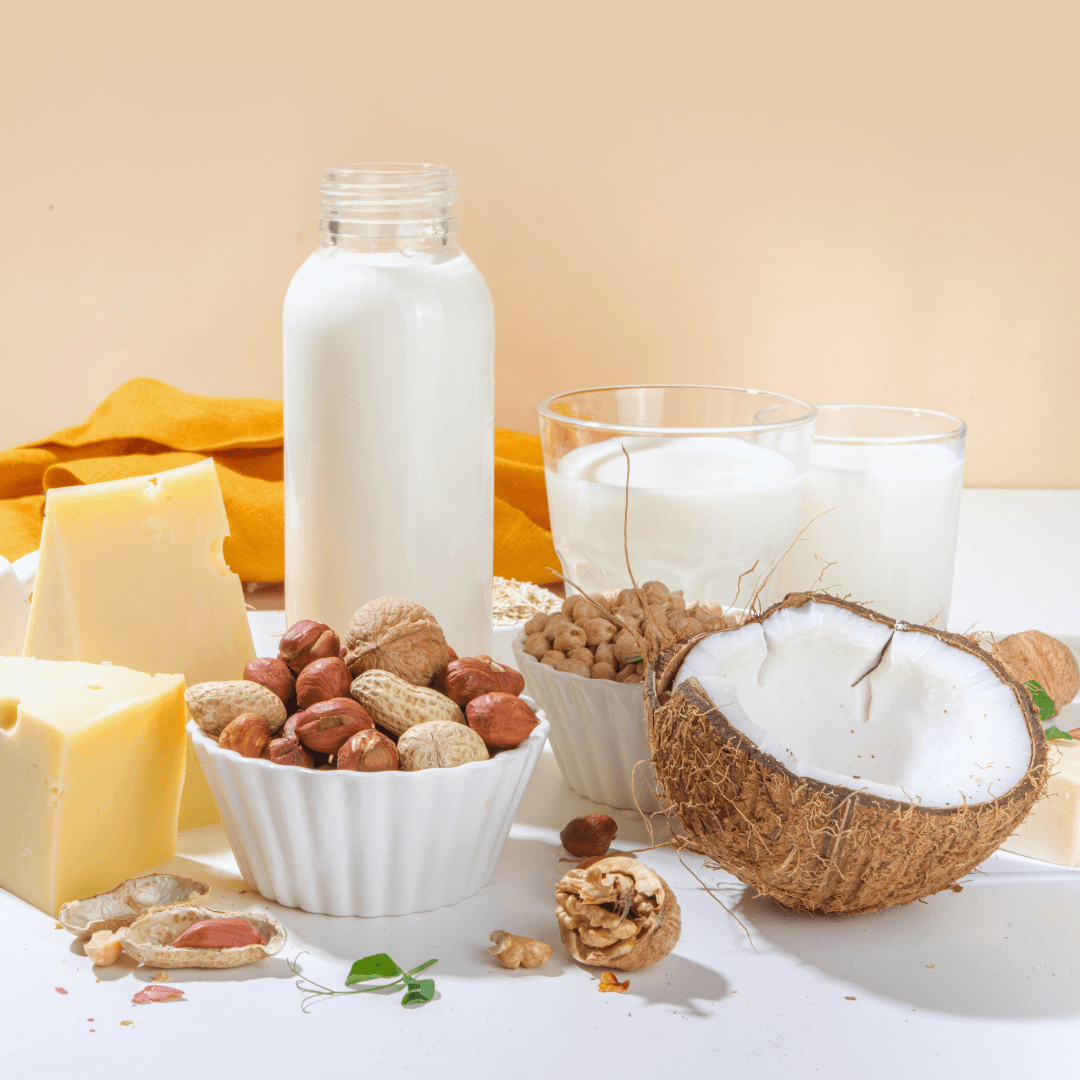
4. Find Vegan Alternatives
There are vegan alternatives for almost every animal product, from milk and cheese to meat and eggs.
Discover vegan options for your favorite non-vegan foods. Trying different brands and products can help you find your favorite foods and make the transition smoother and more enjoyable.
5. Stock Up On Staples
Keep your pantry stocked with vegan staples like beans, lentils, grains, nuts, seeds, vegetables, spices, and plant-based milk.
These basics make it easy to whip up nutritious meals without much hassle. These versatile ingredients can form the basis of many meals, making it easier to prepare vegan dishes quickly.
6. Eat A Variety Of Foods
A varied diet ensures you get all the necessary nutrients. Include a wide range of fruits, vegetables, whole grains, and proteins in your meals to keep them balanced and interesting.
7. Learn About Nutrition
Educate yourself about vegan nutrition to understand which foods provide essential nutrients like protein, iron, calcium, and vitamin B12.
Learning about vegan nutrition can help you make informed choices and ensure you get all the necessary nutrients.
Books, documentaries, and reputable websites offer valuable vegan health and nutrition information.
8. Join A Community
Joining a Veganuary support group can provide motivation, advice, and encouragement. Support from a community can be incredibly helpful during Veganuary. Join online social media groups, forums, or local meet-ups to share experiences, recipes, and tips with fellow participants.
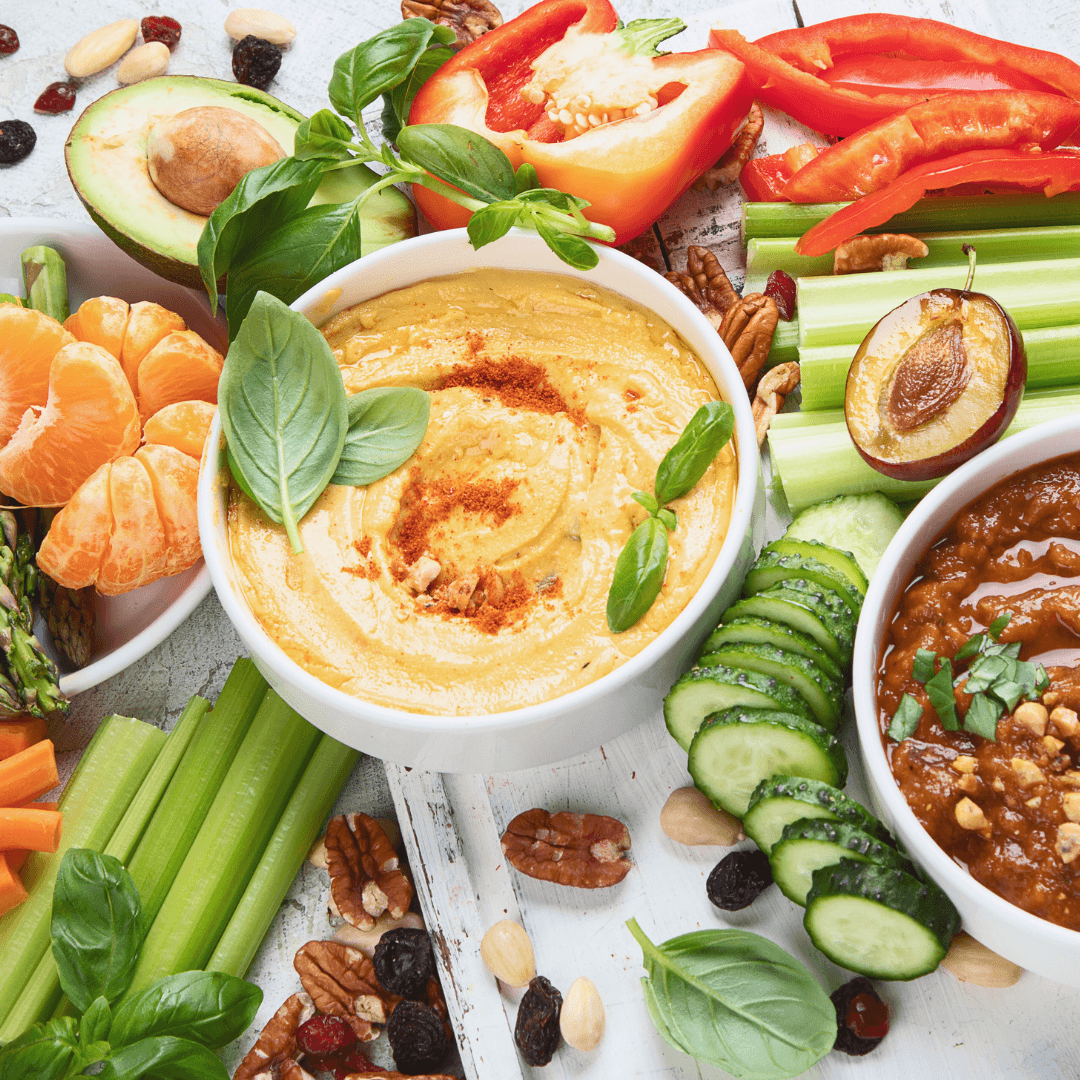
9. Keep Snacks Handy
Healthy vegan snacks can prevent you from reaching for non-vegan options when you’re hungry. Fresh fruit, nuts, seeds, homemade energy bars and raw veggies with hummus are great choices. Preparing snacks in advance ensures you always have something nutritious to munch on.
10. Dine Out Smart
Eating out during Veganuary can be challenging, but many restaurants offer vegan options. Research vegan-friendly restaurants or look at menus online before dining out. Many restaurants now offer vegan options or are willing to accommodate special requests.
11. Be Patient With Yourself
Transitioning to a vegan diet is a big change, and it’s okay to make mistakes. Don’t be too hard on yourself if you slip up. Be patient with yourself and view Veganuary as a learning experience. Every small step counts.
12. Read Labels Carefully
Many products contain hidden animal ingredients, so it’s important to read labels carefully. When shopping, read food labels to identify vegan products and avoid hidden animal ingredients.
Familiarize yourself with certified vegan logos and common non-vegan additives like gelatin, casein, and whey.
13. Stay Motivated
Remind yourself why you chose to participate in Veganuary. Whether for health, ethical, or environmental reasons, keeping your motivation in mind can help you stay committed throughout the month.
14. Focus On Whole Foods
While vegan processed foods can be convenient, focusing on whole foods is key to a healthy vegan diet.
Aim to base your diet on whole, minimally processed foods. Fruits, vegetables, whole grains, legumes, nuts, and seeds provide essential nutrients and satisfy you.

15. Stay Hydrated
Drinking plenty of water is important for overall health and can help you feel your best during Veganuary.
Aim to drink at least eight glasses of water daily and include other hydrating beverages like herbal teas and fruit-infused water.
Staying hydrated can help with digestion, especially when increasing your intake of fibre-rich plant foods.
16. Listen To Your Body
Pay attention to how your body responds to a vegan diet. Everyone is different, and it may take time to adjust.
If you experience any issues, consult a healthcare professional or nutritionist for personalized advice.
17. Celebrate Your Progress
Completing Veganuary is an achievement worth celebrating. Recognize your efforts, share your experiences with others, and consider continuing with a vegan lifestyle beyond January.
Every step towards a more plant-based diet benefits your health, the environment, and animal welfare.
FAQ
1. Why Should I Participate In Veganuary?
Participating in Veganuary allows you to explore a plant-based diet and its potential benefits. It can help reduce your environmental footprint, improve your health by promoting a diet rich in fruits, vegetables, and whole grains, and support ethical considerations related to animal welfare.
2. Is It Difficult To Go Vegan For Just One Month?
Going vegan for Veganuary can be a rewarding challenge. It may require some initial adjustments regarding meal planning and ingredient substitutions, but many people find it manageable and enjoyable with the right resources and support.
3. Will I Get Enough Nutrients On A Vegan Diet During Veganuary?
A well-planned vegan diet can provide all the essential nutrients your body needs. It's important to include a variety of foods, such as fruits, vegetables, legumes, nuts, seeds, whole grains, and fortified foods, to ensure adequate protein, iron, calcium, B12, and omega-3 fatty acids.
4. Is Veganuary Just A Trend, Or Can I Sustain It Beyond January?
While Veganuary encourages a month-long commitment, many participants continue with veganism or adopt a more plant-based diet afterward. Whether you continue veganism long-term or incorporate more plant-based meals into your diet is a personal choice.
Conclusion
In conclusion, Veganuary offers a fantastic opportunity to explore a vegan lifestyle and its benefits.
You can complete the challenge by debunking common myths and following practical tips and continue enjoying a plant-based diet beyond January. Embrace the challenge, enjoy the journey, and discover the positive impact of veganism.
I trust you enjoyed this article about Busting Veganuary Myths. Please stay tuned for more blog posts soon. Take care!
JeannetteZ
>>>Please click here to read my Vegan Travel Guides To World Destinations<<<
>>>Want To Learn How To Create Delicious, Cruelty-Free, Healthy AND 100% Vegan Meals? Try These Awesome Vegan Cooking Courses With A Free 7-DAY MEMBERSHIP<<<
Your Opinion Is Important To Me
Do you have thoughts, ideas, or questions? I would love to hear from you. Please leave me your questions, experiences, and remarks about the article Busting Veganuary Myths in the comments section below. You can also email me at Jeannette@LivingTheVeganLifestyle.org.
Disclosure
This post may contain affiliate links. I earn from qualifying purchases as an Amazon Associate and other affiliate programs. Please read my full disclosure.
Here are links to some of my favourite articles:
Vegan Breastfeeding – Nourishing Your Baby And Yourself With Plant-Based Goodness
Plant-Based Diet vs Vegan Diet: A Comprehensive Guide To Choosing The Right Diet
Vegan Burger Nutrition Facts Explained
Authentic Vegan Recipes Of India
Best Vegan Brunch Recipe Ideas

